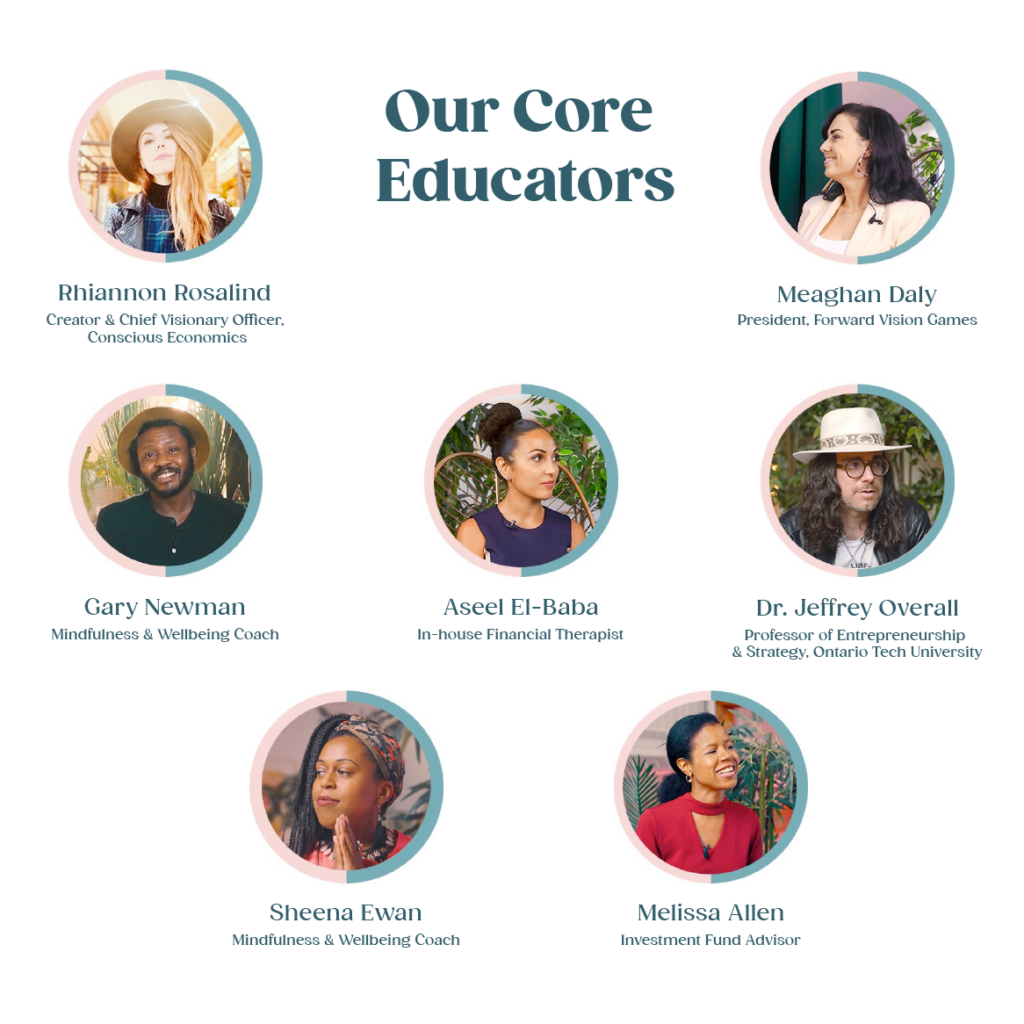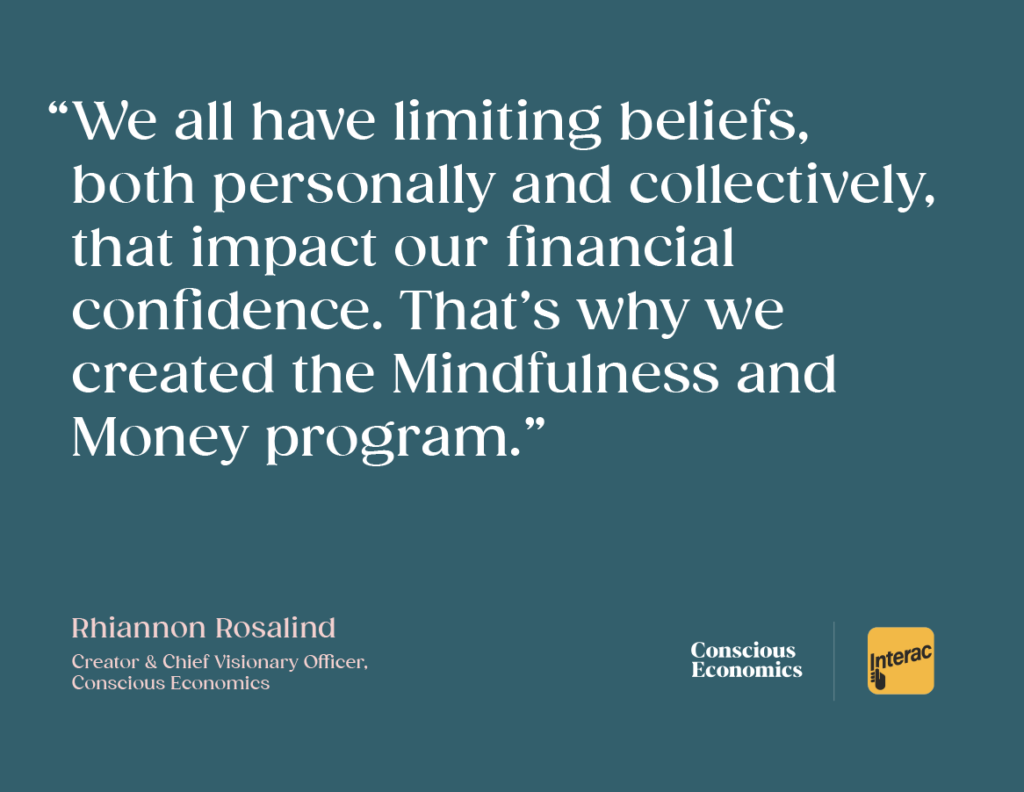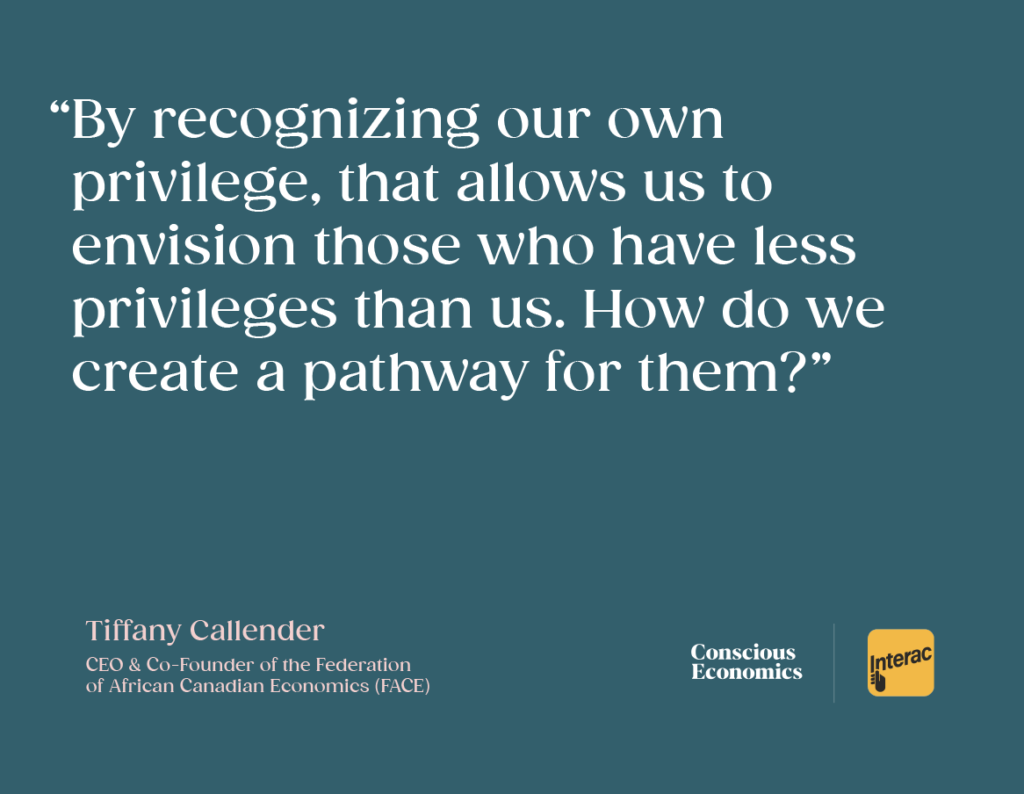Over the past few years, we’ve managed to overcome many unprecedented disruptions and as we emerge from such turbulent times it’s clear that there has been a significant shift in both our personal and professional priorities. Being a good corporate citizen, creating a strong work-life balance, and finding the strength in diversity has become a long overdue focus for new and established businesses. And today’s latest breed of entrepreneurs are finding new ways to make their business thrive through mindfulness, intention, financial confidence, and creating a strong corporate social contribution to be a force for positive change.
Is it possible to be both successful in business and ethical?
Is burnout just an inevitable cost to growing a business?
What can I do to make the community around me grow with my business?
These questions and more are tackled in Mindfulness & Money for Entrepreneurs, a free online course presented by Conscious Economics in partnership with Interac.
Providing big and small business support to participants in their development of financial wellbeing skills through the lens of mindfulness is the core of what Mindfulness & Money aims to do. Presented by a diverse range of business owners, experts, and thought leaders in the field of entrepreneurship, wellness, and social justice, the course delves into subjects that touch on overcoming self-doubt, avoiding burnout, and baking social change into your business strategy. Each section features practical advice from the lived experiences of people who have asked the same questions they’re answering, all with the purpose of giving entrepreneurs a sense of community, confidence, and an understanding of the many common and misunderstood ideas of running a business in “The New Economy”.

Making way for the new economy
A common thread through all the courses is making the shift away from the traditional, rigid hustle-centric ways of the “old economy” and into something that is more empowering, positive, and socially aware.
“The new economy is the future,” says Rhiannon Rosalind, CEO and founder of Conscious Economics. “It’s about hybrid work schedules, collaboration over competition, aligning profit goals with the wellbeing of people and the planet, releasing hustle culture, and supporting the emotional and mental wellbeing of employees. It’s about diverse leadership, multi-generational leadership… the list could go on”.
“At its essence the new economy is about rethinking what it really means to work, be productive, and lead.”
Moving beyond the limiting beliefs for an ethical business
We all have a little voice inside of us that causes us to question whether we are up to the challenge of starting a business and whether or not great success will just lead to even greater failure. But by understanding the source of that voice and the fears behind them come from an actual source, be it apprehension of stepping out of your comfort zone or an inherited subconscious view from your family, we can recognize that voice for what it is and let it pass through us.
The first section of the course, “Become Worthy of Wealth and Attract Business” asks the all-important question that every entrepreneur should ask themselves: If you don’t believe in your own self-worth, how will anyone else? Guided by Rhiannon Rosalind and Financial Therapist Aseel El-Baba, the two work to dismantle some of the common obstacles that get in our way when we try to start a new business and even when we are running one.
“We all have limiting beliefs, both personally and collectively, that impact our financial confidence,” says Rhiannon. “That’s why we created the Mindfulness and Money program. A free resource to support people in discovering what’s holding them back and allowing them to develop the tools to overcome these challenges”

You can enroll for free right now and start learning whenever you’re ready!
Importance of mental health and avoiding burnout
Many entrepreneurs are all too familiar with the hustle culture of waking up early to work late and dealing with the never-ending grind of the business life. It’s a subject that venture capitalist and entrepreneur Melissa Allen and Professor of Entrepreneurship & Strategy, Dr. Jeffrey Overall know all too well. Through their discussion in the second section, “How to Make it in Business Without Burning Out,” they offer pointers on how to do just as the title says.
While you may be driven by fear of being unsuccessful, the work and the business itself will suffer if burnout happens. Sometimes the best thing you can do for your business is know when to take a break. Breathing exercises, meditation, and simply taking a break are all things we can do to avoid burning ourselves out.
Making Entrepreneurship a vehicle for social change
In a world where systemic injustice and racial bias is still prevalent, there are many unique challenges that Black entrepreneurs regularly face. In “How to Start a Business as a Black Entrepreneur”, the third and final section of the course, Tiffany Callender, CEO & Co-Founder of the Federation of African Canadian Economics (FACE), sits down with Sheena Ewan, Founder of One People TO, to discuss those challenges and offer insights into success. One key first step is to do away with the “I got mine” mentality of climbing the business ladder and ensuring a stronger sense of community by using your success to help others succeed.

“By recognizing our own privilege, that allows us to envision those who have less privileges than us. How do we create a pathway for them?,” says Tiffany. “I’ve worked for many years with people who have had incredible talent who could be incredible if just given an opportunity. What does that opportunity look like?”
The ways of the old economy have taught us that with greater financial success comes the need to keep the old ways intact. And that has often meant pushing positive change, collaboration, and community engagement aside to focus on more profit. But the new economy does away with that notion, showing that success and acting as a positive ethical force in local and global communities can walk hand in hand.
“I truly believe that social entrepreneurs will help bring our systems and our planet back into balance,” says Rhiannon. “Social entrepreneurs are creating profitable businesses that solve real global issues with products, services and technological innovations that are focused on healing people and our planet.”
“It’s an exciting time to be alive and in business despite the obvious challenges. The systemic problems are more visible than ever before, but this is activating problem solvers and igniting their passion to create change more urgently. “



